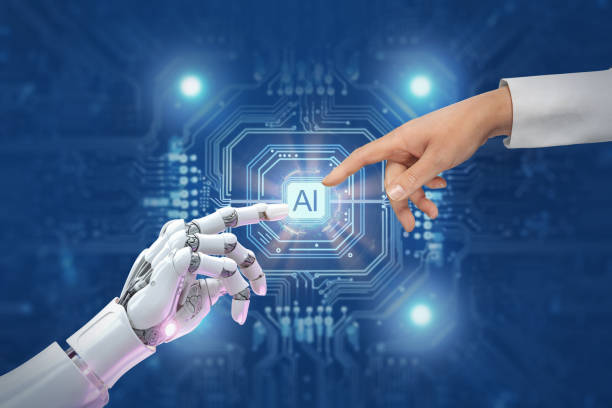
The upcoming Peer Review Week 2024 will shine a spotlight on "Innovation and Technology in Peer Review," a theme that resonates deeply with the ever-evolving landscape of academic publishing. Among the most transformative technologies is artificial intelligence (AI), which is increasingly being integrated into the peer review process. This article explores the relevance, benefits, and pitfalls of AI in peer review, drawing on recent research and insights.

What is Peer Review Week?
Peer Review Week is an annual event dedicated to celebrating the essential role that peer review plays in maintaining scientific quality. This global event, which will take place this year from September 23-27, 2024, brings together researchers, editors, publishers, institutions, and other stakeholders to highlight the importance of peer review in scholarly communication. It provides a platform to discuss the latest trends, challenges, and innovations in the peer review process, fostering collaboration and sharing best practices.
The Relevance of AI in Peer Review
AI's relevance in peer review stems from its potential to address longstanding challenges in the scholarly publishing process. The traditional peer review system, though foundational, often grapples with issues such as reviewer availability, bias, and the sheer volume of manuscripts. AI technologies, with their capacity for rapid data processing and pattern recognition, promise to enhance the efficiency and effectiveness of peer review.
According to a study published by Springer Nature, AI tools can assist in detecting plagiarism, evaluating the novelty of research, and even identifying potential conflicts of interest. These capabilities are crucial in maintaining the integrity and quality of academic publications.

Benefits of AI in Peer Review
- Speed and Efficiency: AI can significantly reduce the time required for initial manuscript assessments. Automated tools can quickly screen submissions for compliance with journal guidelines, relevance, and potential ethical issues, freeing up human reviewers to focus on more nuanced evaluations.
- Enhanced Detection of Misconduct: AI algorithms are adept at identifying patterns indicative of plagiarism, data fabrication, and image manipulation. This automated scrutiny serves as a powerful safeguard against academic fraud.
- Bias Reduction: AI systems, when properly designed and trained, can help mitigate unconscious biases that may influence human reviewers. By providing objective assessments based on predefined criteria, AI can contribute to a fairer review process.
- Scalability: As the volume of research output grows, AI offers a scalable solution to manage increasing submission loads without compromising review quality.

Pitfalls of AI in Peer Review
Despite its promise, AI in peer review is not without pitfalls. Key concerns include:- Confidentiality and Ethical Issues: There is ongoing debate about whether using AI in peer review breaches confidentiality. Critics argue that AI systems, which require access to large datasets, might inadvertently expose sensitive information.
- Quality Control: AI tools are only as good as the data and algorithms they rely on. Poorly designed AI systems can perpetuate existing biases or make erroneous judgments. Continuous oversight and improvement are necessary to ensure AI enhances rather than detracts from the review process.
- Reviewer Resistance: Some reviewers and editors are hesitant to embrace AI, fearing it may replace human judgment. Effective integration of AI requires transparent communication and collaboration between AI developers and the academic community.
eContent Pro's Commitment to Innovation
At eContent Pro, we are committed to leveraging the latest technologies to support the academic community. In November 2023, we hosted a webinar titled "Wil AI Replace Humans Reviewers in Peer Review Processes?" where experts discussed the implications and best practices for integrating AI into the peer review process. The recording of this insightful session is available here.
Final Thoughts
AI's integration into peer review represents a significant innovation with the potential to enhance efficiency, reduce bias, and maintain high ethical standards. However, it also requires careful consideration of confidentiality, quality control, and human collaboration. As we approach Peer Review Week 2024, the conversation about AI in peer review highlights both the opportunities and challenges ahead, ensuring that technology serves to strengthen, not compromise, the integrity of academic publishing.

About eContent Pro
Based in Hershey, Pennsylvania, USA, eContent Pro offers high-quality end-to-end editorial and publishing services, ensuring seamless workflows through the eContent Pro Business Enterprise Management System (BEMS), fast turnaround times, competitive pricing, and exceptional customer service. Since 1994, we have supported commercial publishers, university/library presses, organizations, and societies by streamlining their publishing workflow with innovative publishing solutions.
_______________________________________________________________________________________________
Sources
- Checco, A., Bracciale, L., Loreti, P. et al. AI-assisted peer review. Humanit Soc Sci Commun 8, 25 (2021). https://doi.org/10.1057/s41599-020-00703-8
- Sabet, C. J., Bajaj, S. S., Stanford, F. C., & Celi, L. A. (2023). Equity in scientific publishing: Can artificial intelligence transform the peer review process? Mayo Clinic Proceedings: Digital Health, 1(4), 596-600. https://doi.org/10.1016/j.mcpdig.2023.10.002

